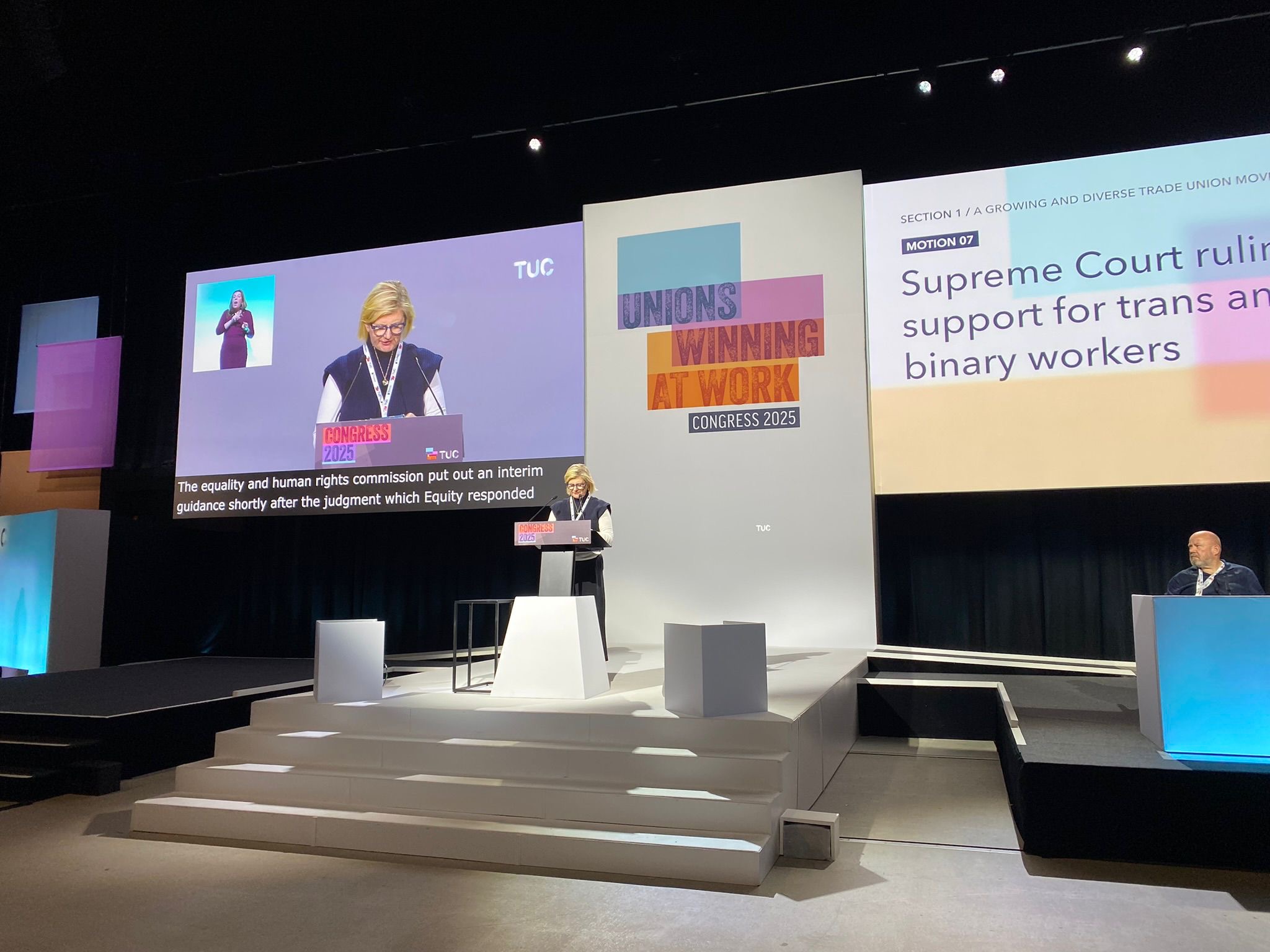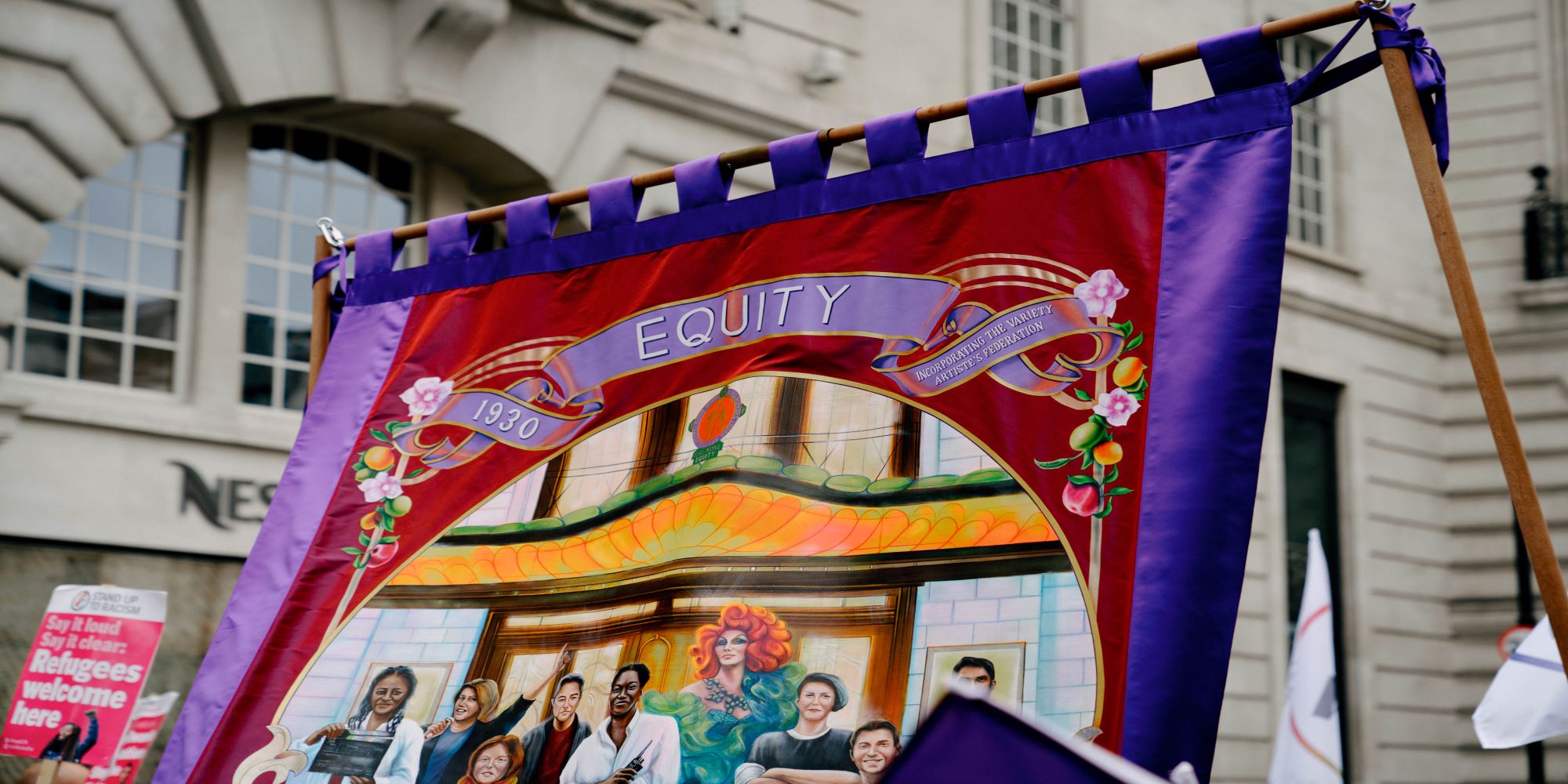Spotlight, audition fees, and performers’ rights were top of the list of industrial issues brought to TUC Congress by Equity members this week.
Taking place in Brighton 7-11 September, the annual conference of trade unions shapes the priorities of the wider movement for the year ahead. Each of the motions brought by Equity – which were decided at Equity’s own annual conference in Derry last May – won the backing of Congress. An emergency motion on Spotlight was added to the last day’s proceedings, securing the backing of the wider trade union movement for our action.
Equity members also leant their voices and support to motions on self-employed workers, sectoral collective bargaining, recruitment of young members, touring artists and Brexit, and support for trans workers. Congress has a lively fringe programme where Equity members also spoke and mingled with trade union delegates from a wide range of industries, exchanging ideas and experiences.
Scrap audition fees
Equity President Lynda Rooke secured the trade union movement’s backing for our abolish audition fees campaign after speaking passionately to our motion on the issue.
She said “What if you had to pay just to be able to interview for a study place? We; that’s what our members face. Because to get into drama school they have to pay fees just to audition. And our research has found that performing arts students are struggling to pay these fees and this proving to be the key barrier preventing working class students from entering the industry and that’s why it continues to be elitist. Well, things have to change.”
Self-employed workers
Equity treasurer David John spoke in support of a motion from Artists’ Union England calling on Congress to work with creative sector unions representing self-employed members to strengthen organising and ensure issues facing self-employed creatives are a priority for campaigning.
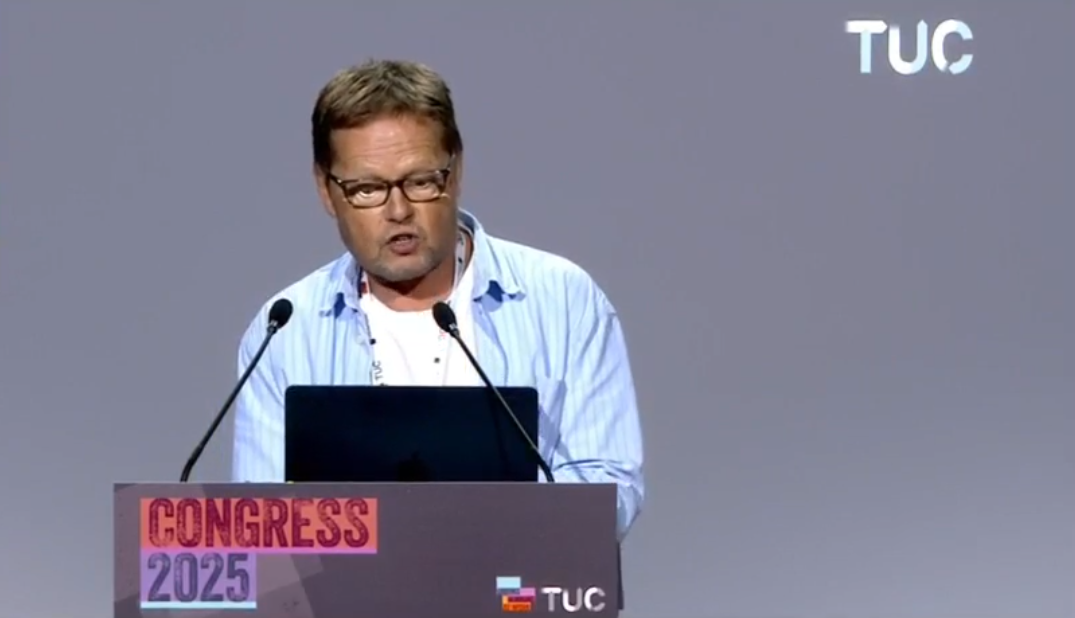
David John said: “We welcome the government's announcement in July which will bring forward tougher measures to tackle late payments. However, we need a change in our industry, a change in the culture, because most creative workers fear challenging production companies on late payments as there is the underlying threat of never being employed by them again.”
Sectoral bargaining
General Secretary Paul W Fleming gave a well-received speech in support of a CWU and NEU motion on organising and bargaining, which called on congress to produce concrete steps to establish sectoral collective bargaining.
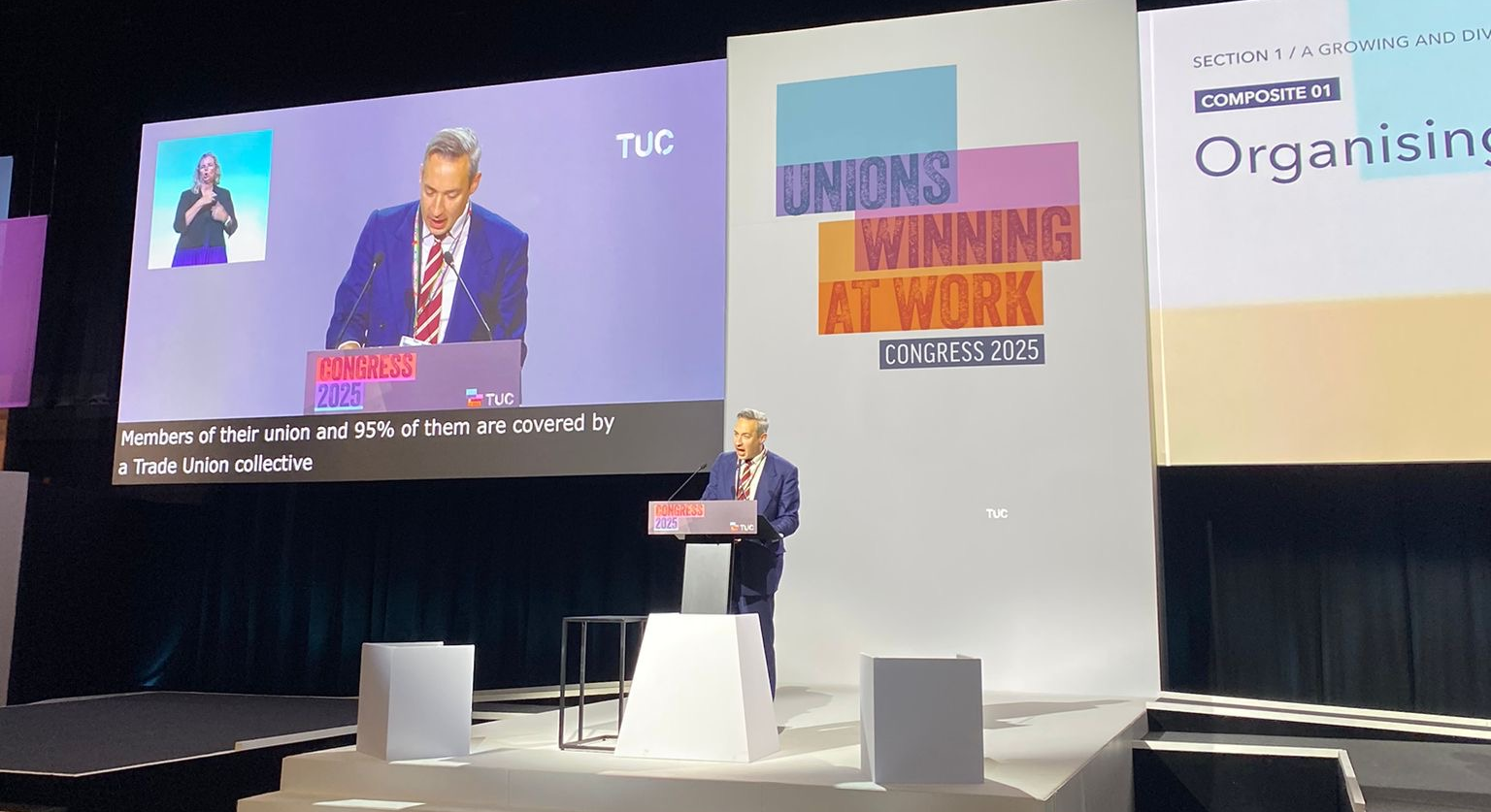
Speaking to the motion, which passed, he said “If the government is serious about growth, collective sectoral bargaining is the best way to get money circulating, get workers dignified and put money in the pockets of our members.”
Recruitment and retention of young members
Equity Councillor Eleanor Sutton spoke in support of a motion received from the TUC Young Workers' Conference on the recruitment and retention of young members.
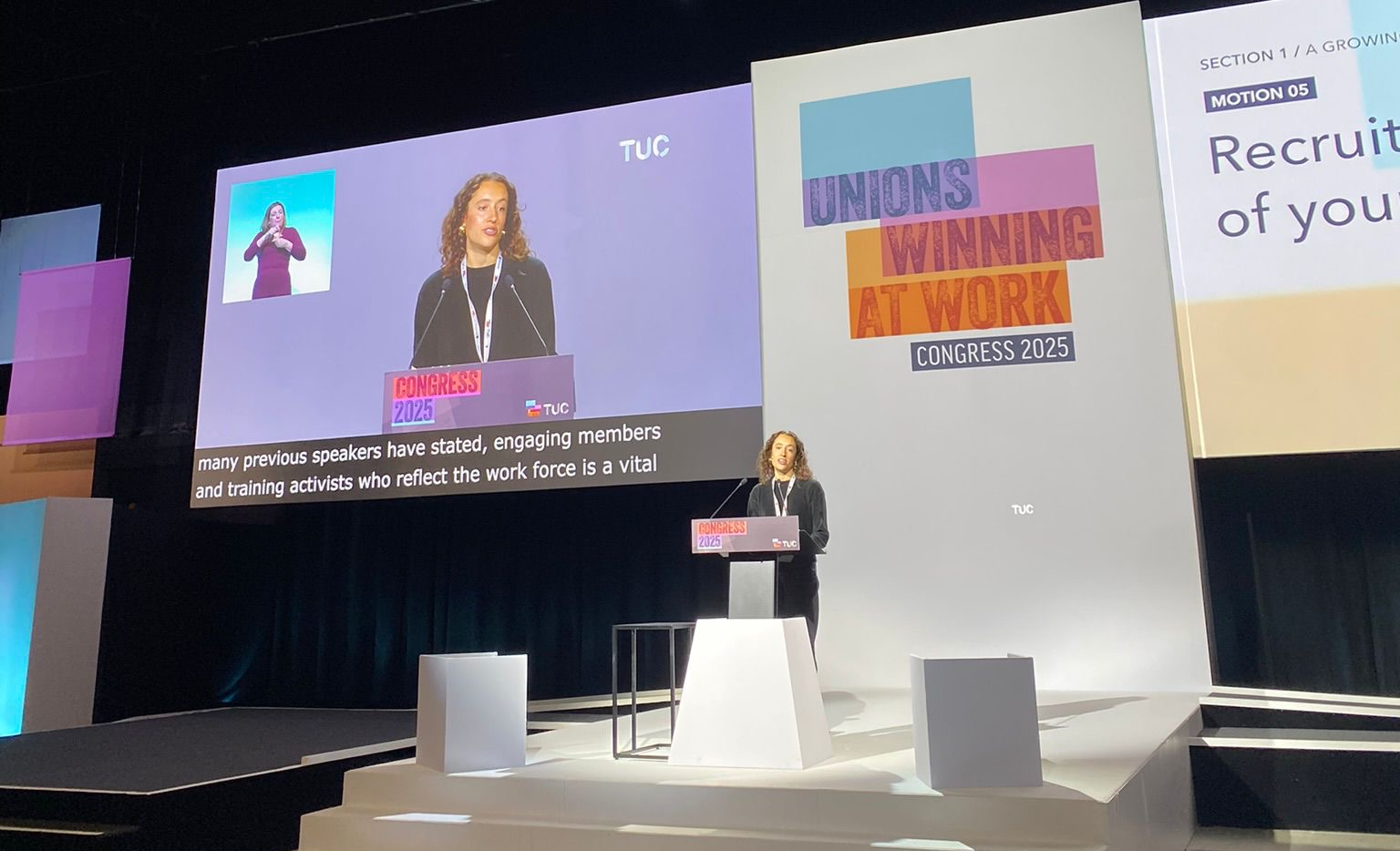
In her speech she called for the movement to do more to attract young members, saying "The youth of today are the lifeblood of the union movement tomorrow". The motion, which called on the TUC to encourage all unions to develop youth-focused recruitment strategies, passed.
AI and the creative industries
Equity Councillor for East and South East England, Hywel Morgan, secured Congress’ commitment to lobbying the government to better protect artists from exploitation by big tech for generative AI.
Hywel spoke to a composite motion moved by Equity and the Musicians’ Union that noted that as generative AI continues to transform the arts and entertainment industry, artists frequently find that their image, likeness or voice has been used in generative AI without consent or remuneration. The motion called on congress to back Equity’s and our sister creative unions calls to protect creators’ rights including by campaigning for the implementation in full of ‘AI for Creative Workers: a TUC Manifesto’ and lobbying government to introduce a regime of personality rights.
Hywel Morgan said: “If this government see AI as the golden goose that will rescue the economy, they're looking in the wrong place.
“Because it’s not the global tech companies that copy, clone or digitally manipulate others data that they've mined, but the workers who create the original, innovative and unique content in the first place that are the seed of gold.”
Europe matters
The challenges facing touring artists following the impact of Brexit on touring in the EU were raised by Equity Vice-President Nick Fletcher. He spoke in support of a Prospect motion calling on the TUC to lobby government to remove barriers to touring. He said “We call on the government to stand by its commitment to take the Brexit brakes off UK artists.”
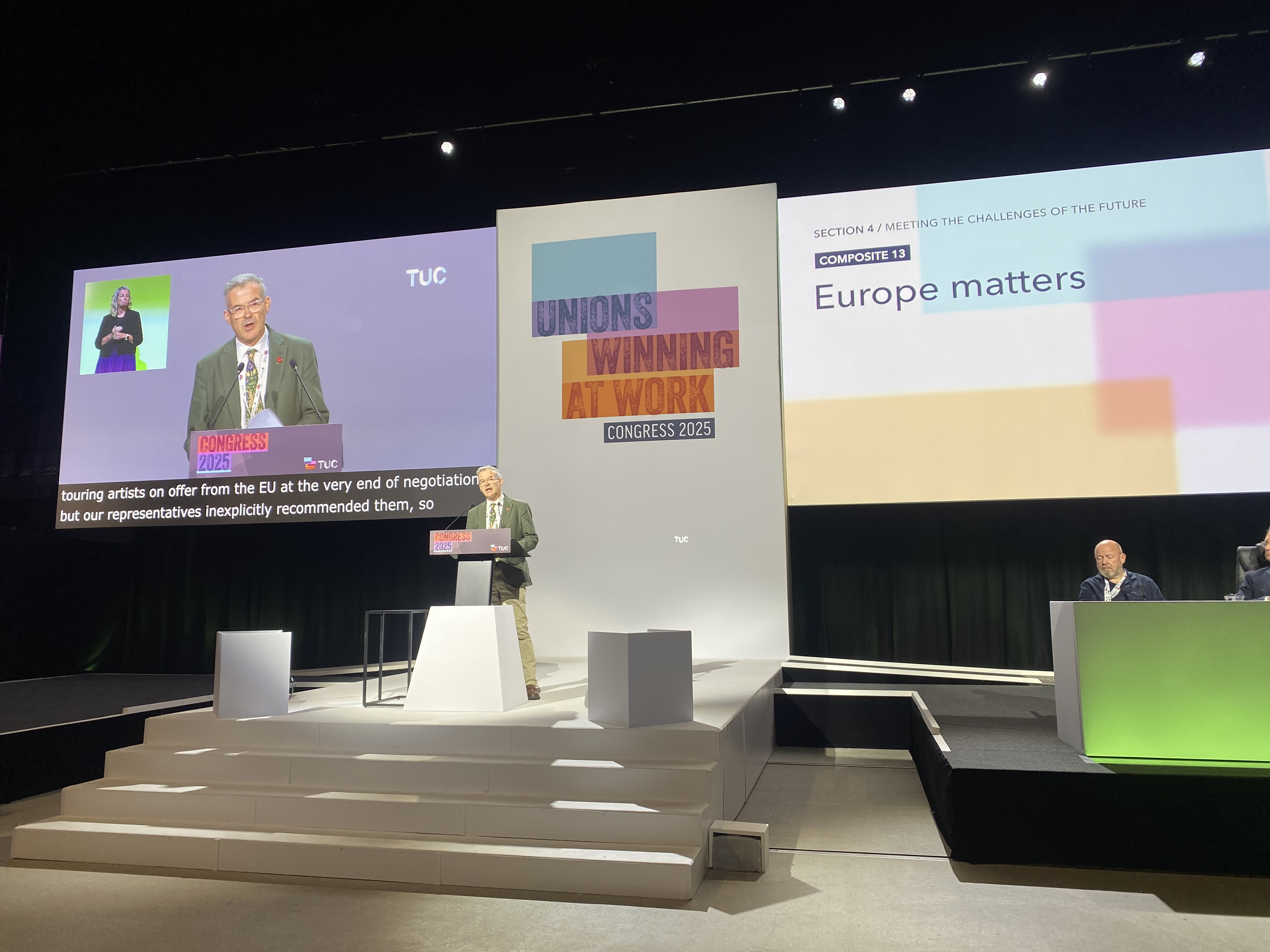
The motion passed - you can read it in full here.
Supreme Court ruling – active support for trans and non-binary workers
Equity Vice-President Jackie Clune spoke in support of a motion from the TUC LGBT+ Conference asking Congress to work with government to update and improve the Gender Recognition Act 2004 and the Equality Act 2010 to achieve social equality for all transgender, non-binary and gender diverse people. The motion passed.
Jackie Clune said: “The day the Supreme Court judgement was handed down, Equity responded in unequivocal terms that this decision will put our trans members at risk in their workplaces and in their ability to live full and free lives. The Equality and Human Rights Commission put out an interim guidance shortly after the judgement, which Equity responded to with great concern.”
Spotlight emergency motion
Following Equity Council’s decision to seek to appeal the High Court’s disappointing judgment in relation to Spotlight, Equity submitted an emergency motion to the TUC Congress to secure the wider union movement’s backing for our actions. The motion just made the cut as the final item on the Congress agenda and was passed unanimously.
Equity General Secretary Paul W Fleming spoke to the motion, saying: “It is wrong that those seeking work and thus having no money should pay for recruitment when those who cast, those who engage, those who employ who by very definition have money, essentially pass on that cost to the out of work artist.
“It is Congress, a tax on hope, the hope of having a voice in our industry. That is a matter for our class. It is about whose stories are told and who gets to tell them on the stages and screens of our country. It is important for social debate, for economic development. But there is now a new risk that the whole model of protection for agency work is about to be upended.”
The motions that passed will now form the trade union movement’s agenda for the coming year.

